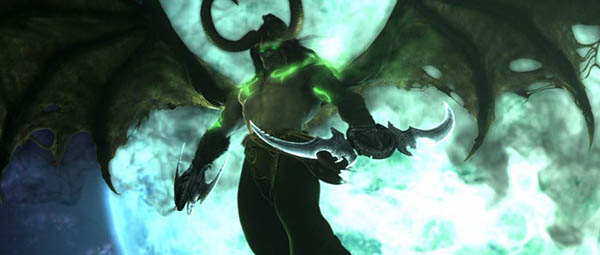Human digitization: we are not ready

The idea of information teleportation is extremely simple: a special scanner parses an object into atoms, at the same time reading their full state. The received data is transmitted to the destination, where a 3D printer with an atomic resolution prints the original object. Simple, logical, understandable. Repeatedly shown in science fiction (for example, in the movie "Tron").
What should be the network bandwidth for comfortable teleportation? Will there be enough inferior 3G from the “big three”?
We introduce a number of simplifications in order to at least approximately estimate the “information volume” of such an object as a person.
Suppose that our “codec of matter”, thanks to compression algorithms, is able to describe each atom with 1 byte of information.
How many atoms are there in man? Complex issue. However, Wikipedia tells us that the chemical composition of the human body is:
- Oxygen - 65%
- Carbon - 18%
- Hydrogen - 10%
- Nitrogen - 3%
The remaining elements account for only 4%, which so far can be neglected. We are children of air and water, that says it all.
And submit an experimental here!

Take, say, a girl (I think they teleport more pleasant than men, if only because they weigh less) weighing 50kg . Fifty is taken for a round account, very convenient numbers are obtained.
In this case, clothing can be neglected, and we get this:
- Oxygen = 0.65 * 50 = 32.5kg = 32500g
- Carbon = 0.18 * 50 = 9kg = 9000g
- Hydrogen = 0.10 * 50 = 5kg = 5000g
- Nitrogen = 0.03 * 50 = 1.5kg = 1500g
Well, we received masses of elements. But we need to count the number of atoms! How to do it? Here we will be helped by a long-forgotten school chemistry course, in particular, such a thing as the Avogadro number . This is a constant that indicates that about 6.022x10 23 particles are contained in one mole of matter, in this case atoms.
So, we need to calculate how many moles of elements we have. To do this, refresh in memory the concepts of the amount of matter and the molar mass .
The molar masses of the elements we need are taken out of the corresponding Wikipedia articles or simply from the periodic table of Mendeleev. Well! We take the formula, substitute, count the atoms:
- Oxygen = (32500g / 16) * 6.022 * 10 23 = 1.223x10 27
- Carbon = (9000g / 12) * 6.022 * 10 23 = 4.517x10 26
- Hydrogen = (5000g / 1) * 6.022 * 10 23 = 3.011x10 27
- Nitrogen = (1500g / 14) * 6.022 * 10 23 = 6.452x10 25
- Total: 4.750x10 27
Fall don't get up
This is what happens? It turns out that such a relatively small object, and even with miserable (1 byte is the same!) Cost per atom, will require as many as 4750 iottabytes !
')
Yes ... This is not just any datacenter. Although we do not need to archive humanity, but only to teleport. This is where the volume is not critical. We take and transmit over the network as they are read!
At the moment, if this post is not yet outdated, a record speed of 100 terabits / s has been reached on Earth. So, the full teleportation will require:
(4.750x10 27 * 8) bits / (100 * 10 12 ) = 3.8x10 14 seconds = about 12 million years .
Twelve million years! During this time, the girl will have time not only to become a grandmother, but to evolve in general. With that, the network speed - a record. And with the Big Three operators, if you transmit the poor thing over the mobile channel, nothing shines at all. The universe will die before the teleportation process is complete.
Sad result
Alas, with the current level of development of network technologies, it makes no sense to even think about the "codecs of matter." The information obtained will be impossible to process or transmit in any reasonable time. In the coming years, five hundred informational teleportation will remain a beautiful idea.
We are not ready.

Source: https://habr.com/ru/post/175011/
All Articles